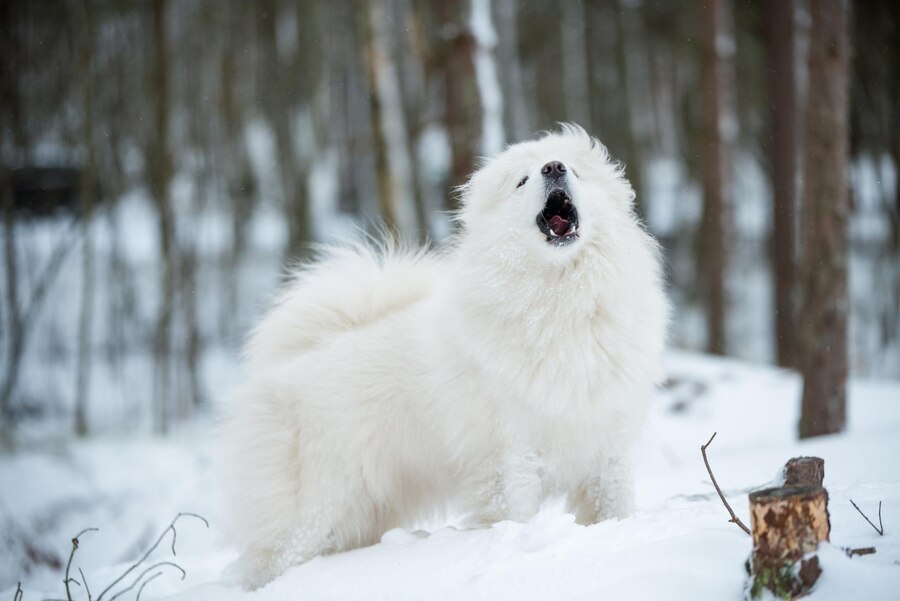Great Pyrenees are not typically aggressive. They are known for their calm and gentle nature.
Great Pyrenees are large, majestic dogs originally bred to guard livestock. They are known for their protective instincts and loyalty to their families. These dogs are generally gentle and patient, making them excellent companions. Socialization and proper training are key to ensuring their well-balanced behavior.
While they may display protective behavior, they are not inherently aggressive. Great Pyrenees are also known for their independence, which can sometimes be mistaken for aloofness. Regular exercise and mental stimulation help keep them happy and well-adjusted. With the right care and attention, Great Pyrenees make loving and devoted pets.
Introduction To Great Pyrenees
The Great Pyrenees has a rich history. This breed was originally used as a guard dog in the Pyrenees Mountains. They protected sheep from predators like wolves and bears. Their origins date back to ancient times, possibly over 1,000 years ago. These dogs were cherished by shepherds and even royalty. The breed’s protective nature has always been a key trait.
Great Pyrenees are large and muscular dogs. They have a thick, white coat that helps them in cold weather. Their eyes are dark and expressive. They have strong, sturdy legs built for endurance. These dogs can weigh between 85 to 160 pounds. Their height ranges from 25 to 32 inches at the shoulder. Their coat is double-layered, which aids in protection.
Common Myths
Many think Great Pyrenees are very aggressive. This is not true. They are gentle giants. They protect their families. They are calm and loving dogs. Aggression only shows in real danger. Training is key to their behavior.
People believe guard dogs are always mean. Great Pyrenees prove this wrong. They are both protective and friendly. They love their human families. They alert you to strangers. They do not attack without a reason. Proper socialization helps them behave well.
Temperament Traits
The Great Pyrenees is known for its gentle nature. These dogs are calm and patient. They were bred to guard livestock, showing their protective instincts. Despite their size, they are affectionate with family. Strangers may find them aloof but not aggressive. Their independent streak is noticeable.
Great Pyrenees dogs are loyal and devoted to their families. They are also confident and strong-willed. These traits make them excellent guard dogs. They are often quiet but will bark to alert of danger. Their gentle demeanor makes them great companions for children. They also have a high tolerance for other pets.
Training And Socialization
Early socialization is very important for Great Pyrenees. They must meet many people and animals. This helps them learn to be friendly. Puppies should explore different places and sounds. This makes them confident and well-behaved.
Use positive reinforcement to train Great Pyrenees. Reward them with treats and praise. Consistency is key. Training sessions should be short and fun. Great Pyrenees respond well to gentle commands. Harsh methods can make them scared or aggressive.
Interaction With Family
Great Pyrenees are usually gentle with children. They love to protect their family. These dogs are patient and calm around kids. They may even act as a nanny. Supervision is always important. Teaching kids to respect the dog is key. Great Pyrenees can be a great family pet.
These dogs adapt well to home life. They enjoy being with their family. Great Pyrenees need a large yard to play. They are usually quiet indoors. Regular exercise keeps them happy. Consistent training helps them adjust. They can live in both city and country settings. Proper care makes them wonderful pets.
Interaction With Other Pets
Great Pyrenees usually get along well with other dogs. They are known for their calm and patient nature. Early socialization helps them develop good relationships with other dogs. They can be protective, which sometimes leads to guarding behavior. Proper training reduces any unwanted aggression. Always supervise their interactions with unfamiliar dogs.
Great Pyrenees can live peacefully with smaller pets. They have a gentle demeanor that makes them good with cats and smaller animals. Introducing them slowly to smaller pets helps in creating a bond. Their large size may be intimidating, so monitor initial interactions. Training and positive reinforcement ensure that they coexist happily.
Real-life Experiences
Many owners say Great Pyrenees are gentle giants. They are very protective of their families. Most people find them to be loving and calm. Sometimes, they can be wary of strangers. This is because they were bred to guard livestock. Overall, they are not usually aggressive.
Experts agree that Great Pyrenees are not typically aggressive. They are known for their calm nature. Socialization and training are key. These dogs need to learn how to behave around people. Experts also suggest early obedience training. This helps them grow into well-behaved adults.
Another Post: Why are Australian Shepherds Tails Docked
FAQ
Are Great Pyrenees Naturally Aggressive?
Great Pyrenees are usually calm and gentle. They can be protective but are not naturally aggressive.
Can Great Pyrenees Be Trained To Be Less Aggressive?
Yes, socialization and training from a young age can reduce aggressive tendencies in Great Pyrenees.
Do Great Pyrenees Get Along With Other Pets?
Great Pyrenees can coexist with other pets. Early socialization helps them adapt better.
Conclusion
Great Pyrenees are generally gentle, loyal, and protective. Proper socialization and training prevent aggressive behavior. These dogs make excellent family pets when given love and care. Understanding their temperament helps in creating a harmonious environment. Always consult professionals for guidance on breed-specific needs and behavior management.

